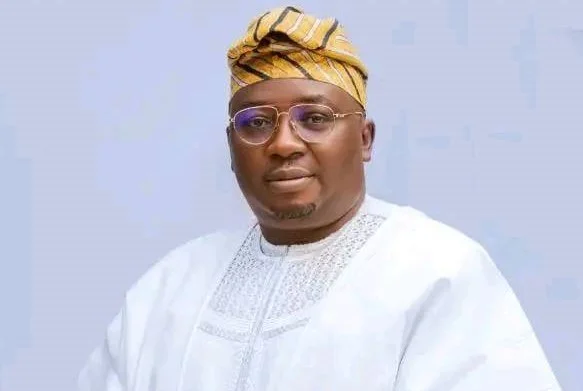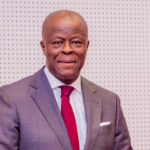The federal government has returned Band A customers among those that will benefit from subsidy payment in the electricity sector with the government paying N22.29 Kilowatt hour (KWh) from what customers under the band consume, Daily Trust Reports.
Checks on the Multi Year Tariff Order (MYTO) issued by the Nigerian Electricity Regulatory Commission (NERC) for November showed that the tariff for Band A customers is N209.50 per Kilowatt hour (KWh) while the cost reflective tariff is N231.79, a shortfall of N22.29.
While the MYTO was for the Port Harcourt Electricity Distribution Company (PHED), sources in NERC told our reporter that the order is applicable to DisCos as the parameters for setting their tariffs are the same.
Recall that NERC had in April effected a 300 per cent rise in electricity tariff for Band A customers from N68 KWh to N225KWh.
- FG approves funds for UNESCO’s media institute
- Housing minister seeks collaboration to expand affordable housing
While making the announcement, the Vice Chairman of NERC, Musiliu Oseni, said the increase will only affect 15 per cent of electricity customers while the increase was done to ensure stability in the power sector.
Similarly, the Minister of Power, Adebayo Adelabu, while defending the increased said continuous payment of subsidy for the category would jerk up the government’s subsidy payment to N2tr annually if nothing was done.
But the tariff has been reduced since then and currently pegged at N209.50 despite the rise in cost of goods and commodities as well as inflationary pressure on the economy that has risen to 33.8 per cent.
Similarly, the continued intervention has increased the government’s subsidy payment by 269 per cent to N2.4tr from N650bn it paid in 2023.
Cost reflective tariff versus allowed tariff
According to the MYTO for November 2024 that was signed by NERC’s Chairman, Engr. Sanusi Garba, and Vice Chairman, Musiliu Oseni, cost reflective tariff for Band A – Non-MD customers is N231.79 while the allowed tariff is N209.50, Band A – MD1, cost reflective tariff is N225.90 while allowed tariff is N209.50 similarly, cost reflective tariff for Band A – MD2 is N220.01 while allowed tariff is N209.50.
For Band B – Non-MD, cot reflective tariff is N223.94 while allowed tariff is N68.96; Band B – MD1 cost reflective tariff is N220.01 while allowed tariff is N67.18, Band B – MD2, cost reflective tariff tariff is N216.08 while allowed tariff is N67.12.
For Band C- Non-MD, cost reflective tariff is N209.32 while allowed tariff is N56.38; Band C-MD1 cost reflective tariff is N200.37 while allowed tariff is N54.64 and Band C – MD2 cost reflective tariff is N200.37 while allowed tariff is N54.64.
Band D – Non-MD cost reflective tariff is N164.34 while allowed tariff is N39.67; Band D – MD1 cost reflective tariff is N207.67, while allowed tariff is N55.4; Band D – MD2 cost effective tariff is N207.56 while allowed tariff is N55.43.
Lastly, Band E – Non-MD cost reflective tariff is N145.07 while allowed tariff is N39.44, Band E – MD1 cost reflective tariff is N207.35 while allowed tariff is N55.43 and Band E – MD2 cost reflective tariff is N207.35 while allowed tariff is N55.43.
Daily Trust reports that the freeze in the electricity tariff of the band is despite increase in the indices NERC uses in calculating the tariff, for instance, Generation Cost rose from N116.1 in October to N117.3 in November while Transmission & Admin Cost increased from N10.6 to N10.7 in November.
Similarly, the price of dollar to Naira was assumed to be N1637.1 while setting the tariff in October and was increased to N1654.2 for November.
FG to pay 562.8bn subsidy in three months
Analysis of the MYTO for the 11 electricity Distribution Companies (DisCos) indicated that NERC approved the sum of N562,8.bn as market shortfall the government will pay from September to November.
A breakdown showed the government will pay N192bn in November; N190bn in October and N180.7bn in September.
Analysis showed Abuja DisCo will receive the highest amount of N81.25bn followed by Ikeja DisCo with N74bn then Ibadan DisCo with N68.86bn.
Others include: Eko DisCo with N62.14bn; Enugu DisCo, N47.26bn; Benin DisCo, N46.13bn, Port Harcourt DisCo, N41.68bn; Kaduna DisCo, N40.77bn; Kano DisCo, N39.85bn; Jos DisCo, N36bn and Yol DisCo, N24.73bn.
Why subsidy will rise to N2.4tr
NERC’s Commissioner of Planning, Research, and Strategy, Dr Yusuf Ali, disclosed at the PwC’s Annual Power and Utilities Roundtable, themed ‘Reigniting Hope in Nigeria’s Electric Power Sector,’ in Lagos that the subsidy had fluctuated due to foreign exchange challenges and tariff adjustments.
“As of November, the subsidy amount stood at N1.9tn, but with current trends, the monthly subsidy for electricity is expected to reach N260bn in December,” Ali stated.
He emphasised that the N2.4tr is an annual estimate that could adjust depending on the monthly cost-benefit tariff.
“Every month, we calculate the difference between the cost-reflective tariff and the approved tariff to determine the subsidy,” he explained.
Ali added that the government is expected to finalise the total subsidy figure by year-end based on actual consumption and tariff trends.
Speaking with Daily Trust, the Executive Director of PowerUp Nigeria, a power consumer advocacy group, Adetayo Adegbemle, said bridging the gap between the cost-reflective tariff and the allowed tariff has become a significant burden on government finances, raising concerns about its sustainability.
He said: “The electricity subsidy in Nigeria has become a financial burden and is no longer sustainable. Urgent action is needed to address the disparities in subsidy distribution, prevent further strain on government finances, and redirect resources to areas where they can have a more significant impact.

 Join Daily Trust WhatsApp Community For Quick Access To News and Happenings Around You.
Join Daily Trust WhatsApp Community For Quick Access To News and Happenings Around You.

